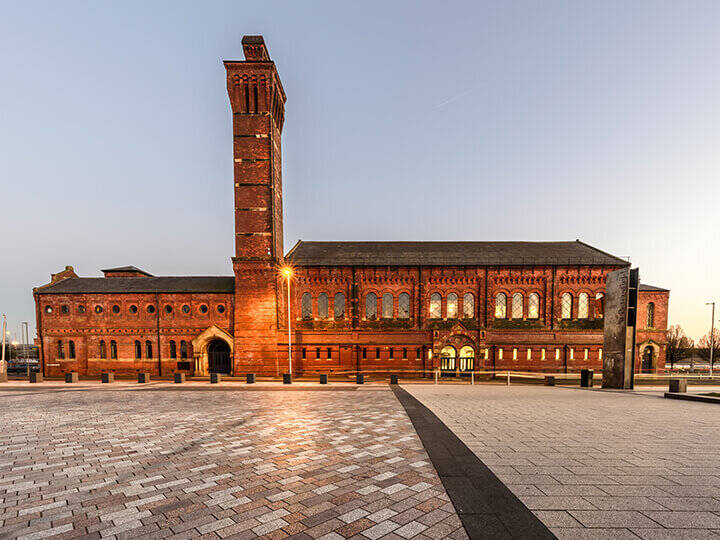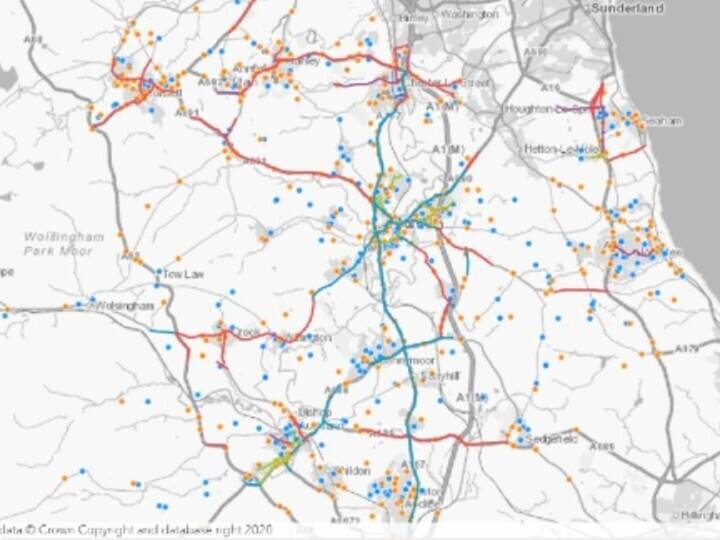Exemplar Award Winner- Highly Commended National Gazetteers Financial Award: Northumberland County Council
Millions of tonnes of garden waste, such as grass cuttings, pruning clippings and leaves, are sent to landfill sites each year. Since local authorities can face huge fines for failing to reduce the amount of waste going into landfill, improving garden waste re-cycling can only be a good thing.
When Northumberland County Council became a unitary authority, it inherited six different waste and recycling schemes, each with different pricing structures and one which was contracted out.
Following a review, out of approximately 146,000 council tax payers in Northumberland, only 16,000 took advantage of the limited garden waste recycling schemes. This was hardly surprising: firstly, due to the size and the nature of this huge rural area many people were not eligible for the service; secondly, the service was very difficult to access – payment was by cheque and scheme administration was haphazard.
The council hired temporary workers to help council staff with manual processing of customer applications and payments over a six week period. The council also decided it needed to promote and extend the service and to make it easier and cheaper to administer and deliver.
The first step was to introduce a new charging policy and then to streamline the administrative process. The latter has been achieved through the creation of a central garden waste database, synchronised with the LLPG and integrated with the council’s CRM and website.
The process is now simple. A citizen’s address and location determines whether the property is eligible to receive the service which is confined to ‘deliverable’ areas. Citizens can check eligibility online simply by typing in a postcode. Payment can be made online or via a call to the contact centre. The former three day registration process has been transformed to a short telephone call or a few minutes spent online. Many citizens are happy to transact online and so contribute to Northumberland’s efforts to move people to the lower cost channel.
Outcomes
In the first year, applications for Northumberland’s garden waste service increased from approximately 16,000 to over 25,000. This will help Northumberland reduce the amount of garden waste going into landfill. Overall waste and recycling improvements, including vehicle route optimisation, have seen savings estimated to be in excess of £200,000 in the first full year.
Despite the huge increase in the numbers who have signed up for the garden waste service in the last year, it has been possible to provide further savings by reducing the fleet by one vehicle. The purchase price of a vehicle of this type is over £100,000 plus associated maintenance costs. The fleet still has plenty of capacity and the council is looking to extend the service further where there is sufficient demand.
The administration of the garden waste scheme is now much simpler. Of the 18,900 users of the previous scheme, 63% paid by cheque via the post or through face to face contact at council contact centres. Face to face transactions are estimated to cost £9.00 whereas an online transaction is estimated to cost £0.36p. The number of users of the new garden waste service paying by cheque has more than halved, with 28% paying by cheque, and is predicted to fall still further. Savings on these elements of the scheme alone are conservatively estimated to be in excess of £50,000. Citizens also benefit from a better service. Joining and paying for the garden waste service is now much more convenient. Citizens can go online at any time, type in their address and check their day of collection, or download a calendar, renew online and make a payment.
Key benefits
• system developed at minimal cost using internal resources
• it has encouraged greater take up of the garden waste service
• less waste going into landfill means less fines
• significant savings in excess of £50K through reduced cost of scheme administration and method of payment changes
• encourages people to shift to the lower cost online channel
• route optimisation, together with other waste and recycling, are delivering savings of over £200K per year
• further saving by reducing the overall vehicle fleet size
• much more convenient for citizens to check eligibility, sign up and pay for the scheme.
View from the authority
“This project is very much in the spirit of Total Place where collaborative working and data sharing is encouraged in a whole area approach that seeks to work across normal administrative boundaries. The project demonstrates the value of using the LLPG as the common referencing system. LLPG classifications, in particular, are helping to ensure that buildings and land are accurately presented, enabling asset managers to work more closely. We continue to raise the profile at every opportunity and have always met with a positive response.”
-Val Purkis GIS Manager, Bristol City Council Jeremy Screen Strategic Property Manager, Bristol City Council Linda Mawby Asset and Valuation Manager, South Gloucestershire Council Geoff Brakspear Asset Manager, North Somerset Council Dave Harwood Head of Estates, Great Western Ambulance Service NHS Trust Malcolm Grainer Asset Review Manager, Bath and North East Somerset Martin Baker Property Records Co-ordinator, Bath and North East Somerset Terry Osmund Avon Fire and Rescue Dave Harley Avon and Somerset Police Chris Hughes Head of Estates, Bristol NHS Laurence Stroud Avon and Wiltshire Partnership Mental Health Trust Jennifer Anthony South Gloucestershire Primary Care Trust



